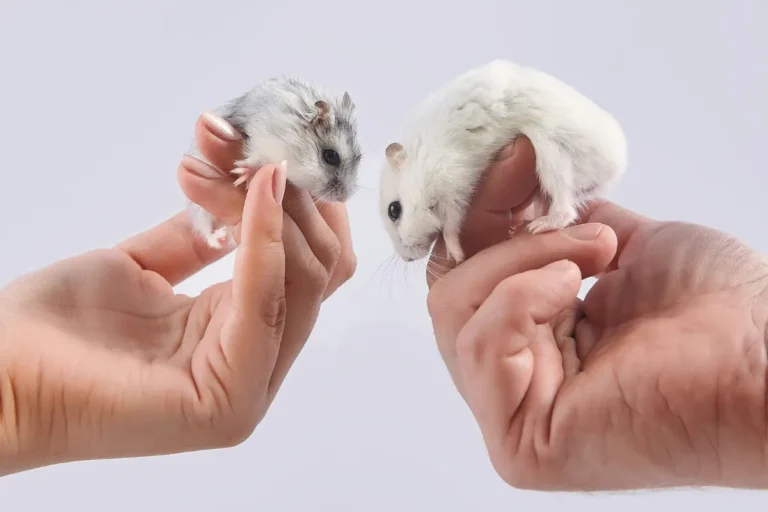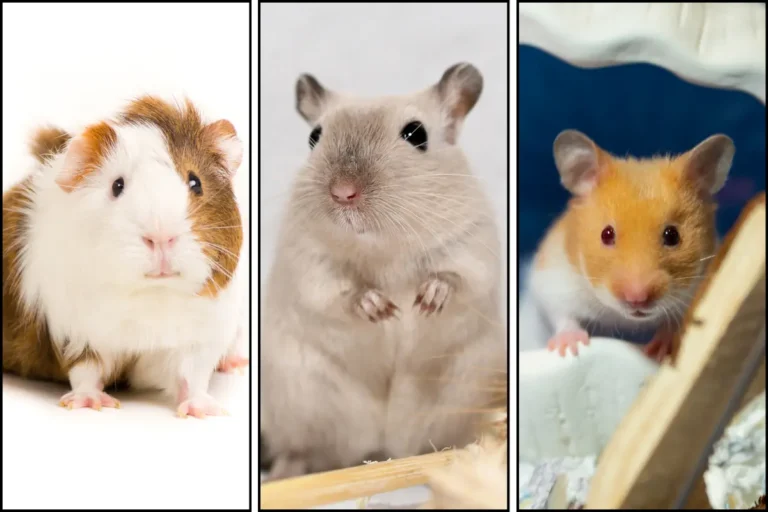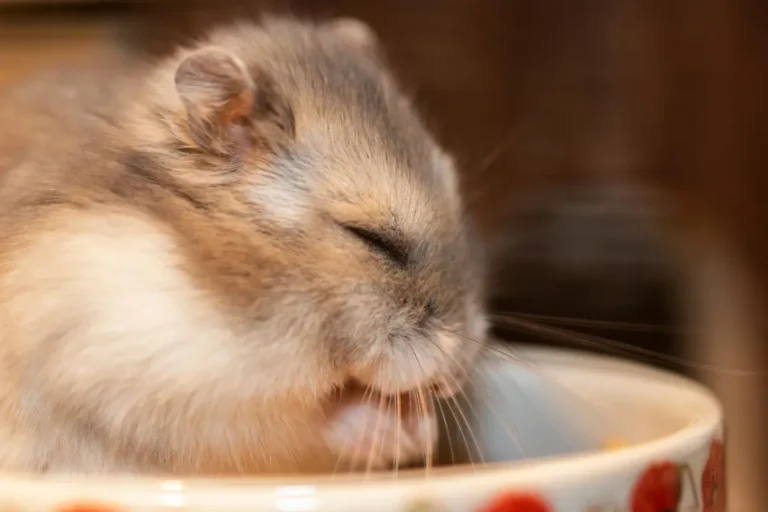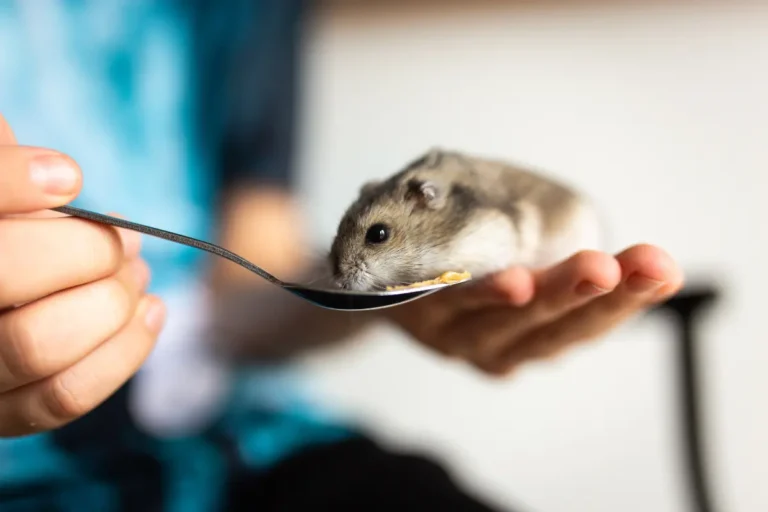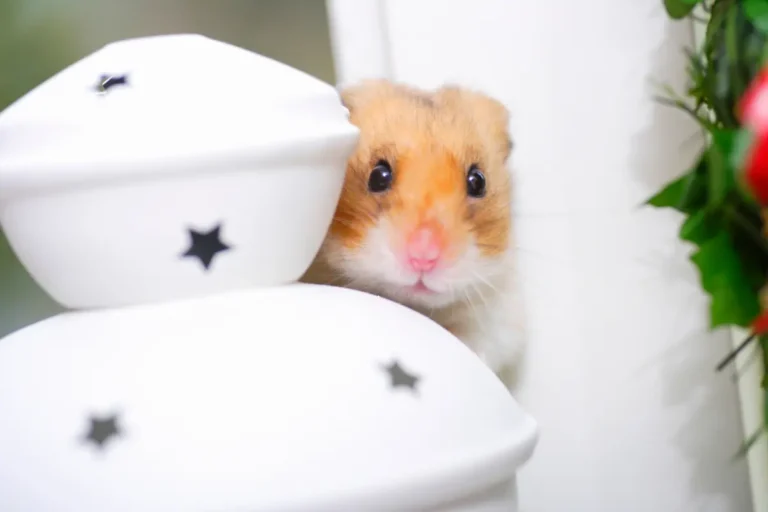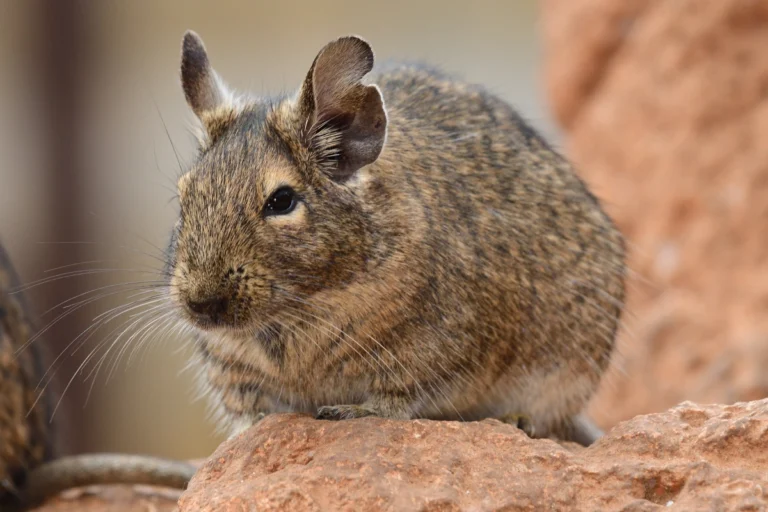What to Never Do Around Your Rabbit: 12 Things They Hate the Most
If you’re a rabbit owner, you likely know that these fluffy creatures have distinct preferences. As much as they love your company, some things can easily upset them. Understanding what your bunny dislikes will help you create a more comfortable and happy environment for them.
Here are the top 12 things rabbits hate and how you can avoid causing them stress.
1. High Temperatures
Rabbits are highly sensitive to heat, and exposure to high temperatures can be dangerous for them. Unlike humans, rabbits do not sweat, so they cannot cool themselves through perspiration. Instead, they rely on their long ears to regulate their body temperature.
The ideal temperature for a rabbit is between 60 to 65 degrees Fahrenheit. Temperatures over 85°F can quickly become hazardous. During hot summer days, it’s crucial to provide your rabbit with a cool, shaded area where they can escape the heat. Make sure their hutch or living space is positioned away from direct sunlight and well-ventilated to promote air circulation.
Additionally, ensure your rabbit always has access to fresh, cool water. You can help them stay cool by dampening their ears with a cool cloth or using a fan to create a breeze around their living area.
2. Certain Smells
Rabbits have an exceptional sense of smell, which is one of the reasons they are so good at detecting potential threats in their environment. As prey animals, they are highly sensitive to odors that might signal the presence of a predator. Strong or unfamiliar smells can cause them stress, anxiety, and even fear.
Rabbits are particularly sensitive to the smell of blood, urine, and certain strong household scents. The scent of blood or even urine can make them think a predator is nearby, triggering a panic response.
Some specific odors that rabbits can’t tolerate include:
- Crushed red pepper: The spicy, pungent scent can be overwhelming and irritating to rabbits.
- Ammonia: Found in some cleaning products and urine, ammonia has a strong, sharp smell that rabbits find unpleasant.
- Vinegar: While useful as a cleaning agent, the sharp scent of vinegar is off-putting to rabbits and can make them anxious.
- Garlic: The strong aroma of garlic can irritate rabbits and is one of the many smells they prefer to avoid.
To keep your rabbit happy and stress-free, try to minimize exposure to these odors. Instead of using chemical cleaners, opt for pet-safe cleaning solutions and keep your bunny’s living space as odor-free as possible.
3. Being Lonely
Rabbits are inherently social animals, and they thrive on companionship. In the wild, rabbits are rarely alone; they live in groups for safety and social interaction. Domestic rabbits, too, are happiest when they have a buddy to share their time with.
While it’s ideal to have two rabbits so they can keep each other company, if you only have one, you’ll need to be their main source of companionship.
Here’s how to ensure your bunny isn’t lonely:
- Spend time with them daily: Give your rabbit regular attention, playtime, and interaction. Even if you’re busy, try to make time for cuddling, petting, or simply sitting nearby while your bunny hops around.
- Provide enrichment: If you’re not able to adopt another rabbit, make sure your bunny has plenty of toys, tunnels, and things to explore. This helps keep them mentally stimulated and entertained, preventing boredom.
- Consider adopting a second bunny: If possible, adopting a second rabbit is the best way to prevent loneliness. When introducing a new rabbit, do so gradually and in a controlled manner to ensure they bond well.
A lonely rabbit can become withdrawn, aggressive, or depressed, so make sure to prioritize their need for social interaction and companionship.
4. Having Nowhere to Hide
Rabbits, being prey animals, have an instinctual need to feel safe and secure at all times.
In the wild, they would often hide in burrows or sheltered areas to escape from predators. Domesticated rabbits still retain this survival instinct. Without a designated hiding spot, your bunny may feel vulnerable, anxious, or even overwhelmed by the environment around them.
To make your bunny feel safe and secure, provide them with a hideout or shelter where they can go to feel protected. This can be something as simple as a cardboard box, a small pet tent, or a tunnel.
Make sure the hiding spot is in a quiet, low-traffic area of your home. Avoid placing it near windows or busy areas where your bunny might feel constantly exposed. The hideout should feel like a private, safe sanctuary away from the chaos.
5. Socializing with Predators
Rabbits are prey animals by nature, and they are hardwired to be cautious around any creatures that could pose a threat to their safety.
Introducing your bunny to a dog or cat, even if they seem calm, can trigger intense fear in your rabbit. The presence of a predator, or even the sounds and smells associated with one, can be overwhelming for your bunny.
To keep your rabbit safe and comfortable, it’s best to keep them away from known predators. This means no direct interactions with cats, dogs, or other animals that could harm them. If you want your rabbit to be around other pets, make sure the introduction is done slowly and carefully, with lots of supervision, and never leave them alone together.
6. Loud Noises
Rabbits have an extremely sensitive sense of hearing. Their acute hearing allows them to pick up even the faintest sounds, which is why loud noises can be so distressing for them.
Sounds that are especially stressful for rabbits include:
- Fireworks: The sudden, loud explosions can terrify a rabbit and cause a lot of stress.
- Thunder: The deep rumbling of thunder can be unsettling for rabbits, as they might associate it with danger.
- Loud Music: High volumes of music, especially with deep bass, can be uncomfortable and frightening for rabbits.
- Vacuum Cleaners: The noise from vacuum cleaners can startle rabbits, especially if they’re not used to the sound.
- Slamming Doors: Any sudden, sharp noises—such as slamming doors or dropping heavy objects—can frighten your bunny.
- Shouting: Raised voices or shouting can make a rabbit feel like they’re in a threatening environment.
Rabbits’ heightened hearing is one of their primary survival mechanisms, and it can lead them to perceive loud noises as a warning of an impending threat. This can result in panic, shaking, and even long-term anxiety. To keep your rabbit calm, try to minimize their exposure to loud, unexpected sounds.
7. Washing Them
Rabbits are naturally clean animals and spend a significant amount of time grooming themselves. They use their teeth and paws to keep their fur clean and well-maintained, which is typically sufficient to prevent any dirt or odors from accumulating. Because of this, rabbits generally do not need baths.
When rabbits are bathed, they often experience panic and stress. Additionally, rabbits’ fur is dense and difficult to dry thoroughly, so even if you manage to bathe them, it can leave them feeling chilled.
Instead of bathing your rabbit, focus on maintaining their cleanliness in other ways:
- Spot cleaning: If your rabbit gets dirty in a specific area (like their paws or behind), you can gently clean them using a damp cloth or pet-safe wipes.
- Grooming: Regular brushing helps remove loose fur, reduces shedding, and keeps their coat healthy. This is especially important for long-haired rabbits.
- Litter box maintenance: Keeping their litter box clean and changing the bedding regularly will help prevent any smell or contamination, which might otherwise require a full bath.
If your rabbit is having trouble grooming themselves or has a medical condition that affects their cleanliness, consult with a veterinarian to determine the best way to address the issue without resorting to a bath.
8. Damp, Stale, or Dusty Hay
Hay is the cornerstone of a rabbit’s diet, providing essential fiber that aids in digestion and helps prevent health issues like obesity and gastrointestinal stasis.
Rabbits rely on fresh, clean hay to meet their nutritional needs. If the hay is damp or stale, it can develop mold or bacteria, which could cause respiratory problems or digestive issues for your rabbit. Dusty hay, on the other hand, can irritate their sensitive lungs, leading to respiratory discomfort or illnesses like allergies or pneumonia.
Signs Your Hay is Too Dusty or Stale
- Dust particles: If you see visible dust clouds when handling the hay, it’s likely too dusty for your rabbit.
- Smell: Fresh hay should smell sweet and grassy. If it has a musty, moldy, or stale odor, it’s time to throw it away.
- Color: High-quality hay should be greenish. If the hay is yellow, brown, or overly dry, it’s past its prime.
What to Look For in Fresh Hay
The best hay for your rabbit is fresh, green, and free from mold or dust. Some of the most popular types of hay for rabbits include:
- Timothy hay: A popular choice that provides excellent fiber content. It should be soft and sweet-smelling.
- Meadow hay: Harvested from wild grasses, this hay is usually fresh and varied, offering different textures and nutrients.
- Oat hay: Made from the same plant as oat seeds, it’s often more fibrous and can be good for rabbits who need extra fiber.
To ensure the best hay for your bunny, buy from reputable suppliers and store the hay in a cool, dry place away from humidity.
9. Chasing After Them
While it might seem like harmless fun to chase after your rabbit, this behavior can be extremely stressful and harmful to your bunny.
Rabbits have a very sensitive nervous system, and their instinct is to avoid predators at all costs. When you chase a rabbit, even if you don’t intend to harm them, they perceive it as a direct threat to their safety. This can lead to:
- Panic: Your rabbit may bolt in fear, increasing their heart rate and causing stress.
- Injury: A rabbit can injure itself while trying to escape, especially if it tries to leap or dart into a space that could cause harm, such as under furniture or into a corner.
- Loss of Trust: If your rabbit learns to associate you with fear and chase, they may start to avoid you altogether. Building trust with your bunny is essential, and being chased undermines that relationship.
How to Interact with Your Rabbit Without Chasing
Instead of chasing, focus on building trust and creating a calm environment for your rabbit:
- Let them come to you: Instead of chasing, allow your rabbit to approach you at their own pace. If you want to pet or hold them, sit quietly and wait for them to come to you.
- Positive reinforcement: Use treats or gentle coaxing to encourage your rabbit to come closer. Reward them for calm behavior, which helps them associate you with positive experiences.
- Gentle play: If you want to interact with your bunny, try using toys or a rabbit-safe playpen to engage them in a way that doesn’t cause stress or fear.
This helps them feel safe and secure, reducing stress and promoting better overall well-being.
10. Small Spaces
A spacious, enriching environment is key to ensuring that your rabbit lives a long, healthy, and fulfilling life.
How Much Space Does a Rabbit Need?
While the exact amount of space needed will depend on your rabbit’s breed and personality, it’s important to provide a living area that allows them to move freely. A good rule of thumb is that your rabbit should be able to:
- Stand up on their hind legs without hitting the top of the enclosure.
- Stretch out fully in all directions, including when lying down.
- Hop around freely and change directions without hitting obstacles or feeling cramped.
Alternatives to Small Cages
- Exercise Pens: A large, portable exercise pen provides much more space than a standard cage and can be set up in different areas of your home.
- Rabbit Rooms: If you have the space, consider dedicating a room to your rabbit. This allows them to explore and feel more like they’re in a natural environment.
- Time Outside the Cage: Allow your rabbit to spend several hours a day outside of their enclosure. Supervised time in a larger area allows them to move, explore, and stretch their legs.
If possible, it’s best to let your rabbit roam freely in a safe space of your home. You can set up a rabbit-proof area where they can explore and exercise. If free-roaming isn’t an option, make sure they have access to a large playpen or a bunny-proofed room.
11. Roughhousing by Children
Rabbits are gentle creatures, but they can become easily frightened by unpredictable movements or rough behavior. Children, particularly younger ones, can sometimes be too energetic or impulsive when interacting with a rabbit, which can cause the bunny distress.
To ensure a positive experience for both your bunny and the child, it’s important to teach children how to interact with rabbits calmly and respectfully. Children should be taught to approach the rabbit slowly, giving them time to feel comfortable and allowing the rabbit to come to them. They should never chase the rabbit or pick them up without supervision, as this can cause fear and anxiety for the bunny.
It’s also crucial to emphasize that rabbits don’t like to be held for long periods. While some rabbits enjoy being pet, most prefer to stay on the ground where they feel secure. If children are not gentle or respectful, a rabbit may begin to distrust them, and this could take a long time to undo.
12. Clothing and Accessories
Dressing up your rabbit in cute clothes or accessories might seem fun to you, but it’s one of the things that can upset your bunny.
While humans might enjoy the look of a dressed-up pet, rabbits are not made to wear clothes. They rely on their fur to keep them warm and protected. When they’re dressed up, they may feel trapped, restricted, or simply uncomfortable, leading to anxiety and stress.
Additionally, clothes can interfere with their natural grooming behavior and hinder their ability to adjust their body temperature properly.
Instead of focusing on dressing them up, spend time training your rabbit. Many rabbits can learn simple tricks like “sit” or “high five” using positive reinforcement. This not only helps create a stronger bond with your pet but also provides mental stimulation.
If you want to enhance your rabbit’s living space, consider items like cozy bedding, hideaways, or chew toys. These items are designed to enrich your rabbit’s environment and make them feel more comfortable and entertained, without causing any stress.

